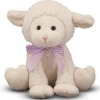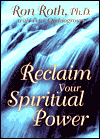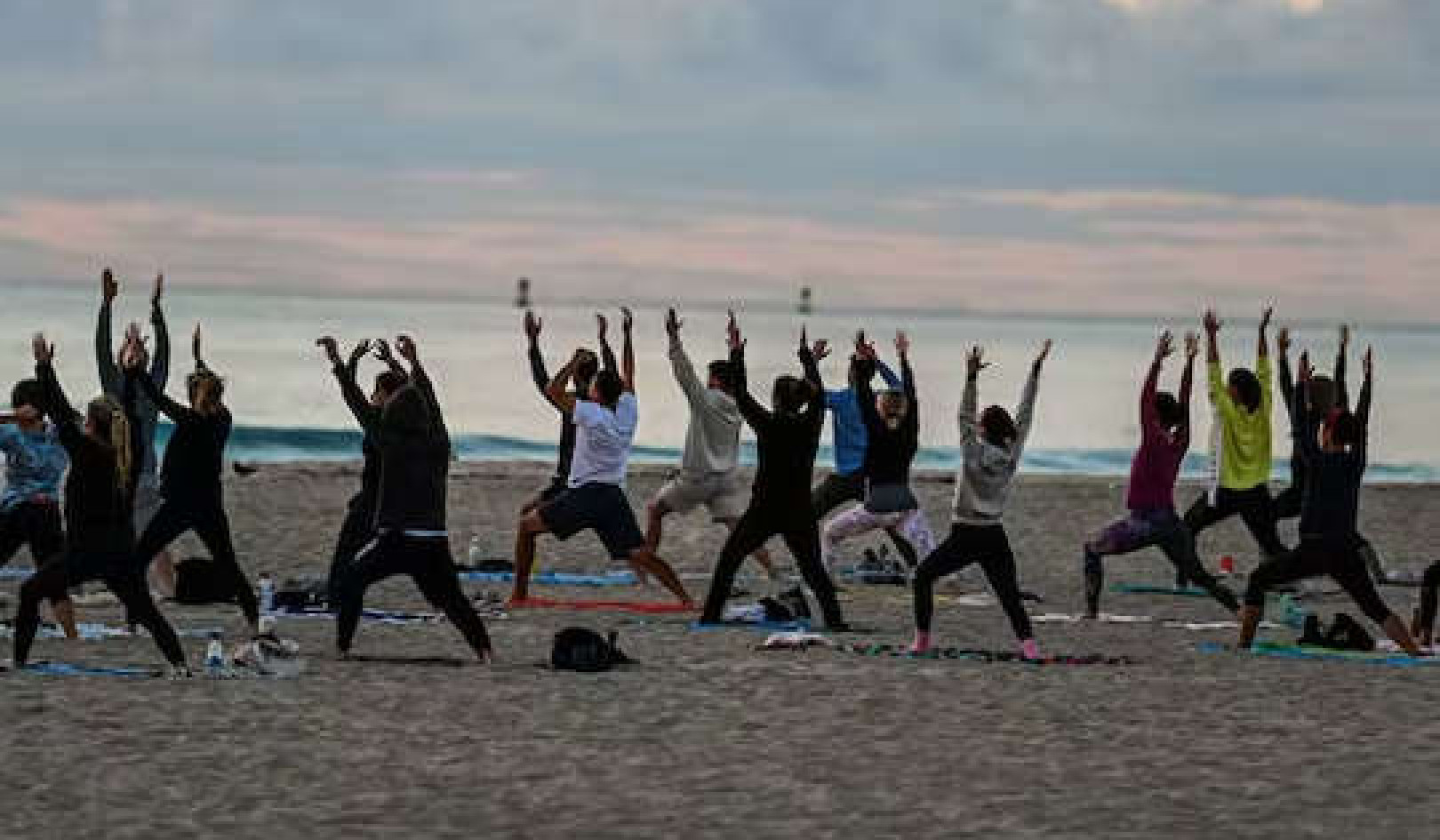
Simply put, the 23rd Psalm is one of the most popular prayers in the Western world. It also happens to be one of the most powerful prayers ever uttered outside of the Lord's Prayer -- which is partly based upon this Psalm. This beautiful collection of words can be the key to reclaiming spiritual power.
Most of us recognize the 23rd Psalm's familiar phrases, but what we don't often appreciate is the impact of the principles contained in the Psalm, probably because it doesn't fit the model of what we've been taught a prayer should be.
What Is Prayer? Asking or Having?
We believe that to pray means asking God to do something for ourselves or someone else. Psalm 23 is the recognition that everything we need has already been done; the writer of the Psalm is merely affirming that fact. Jesus never asked God to do anything to heal those he laid his hands on. Even in the Garden of Gethsemane, Jesus wasn't asking for anything; he was saying that he would do whatever was in God's will, even if it wasn't Jesus' own preference.
When I applied this realization to my own condition following my stroke, I had to ask myself, "Do I pray asking God to heal me of this stroke? Or do I just sit in the stillness and experience God?" Keep in mind that when Jesus said, "Seek first the kingdom, and all these things will be added to you," he was saying that God already knows our needs, and has responded to them before we ever ask.
I realized that I was no longer to pray for my own healing, but only to remember the covenant of humanity with God that's spelled out in the books of Leviticus and Deuteronomy in the Hebrew Bible: "You shall love the Lord your God, and you shall love your neighbor as yourself." After all, that's the line Jesus quoted when asked to boil the Commandments down to one thing.
If you keep that Commandment of love and compassion that's essential to the Divine covenant, as it says in Deuteronomy 28:1,8, then God will shower you with blessings: "You will be blessed in the town and blessed in the countryside; blessed, the offspring of your body, the yield of your soil, the yield of your livestock, the young of your cattle and the increase of your flocks; blessed, your basket and your kneading trough." And Proverbs 3:6 says that when you acknowledge God in all your ways, He will see that your paths are smooth.
Those scriptures were among the first that impressed on me, more than 30 years ago, the need to be aware of the Presence of God in everything, even if you don't understand it. All of these thoughts started coming back to me in the first few weeks following my stroke. For, as the famous minister Kathryn Kuhlman used to say, "It's all there." Here now is the text of the Psalm in a modern translation:
The Lord is my shepherd. I shall not lack. He makes me lie down in green pastures. He leads me beside the still and restful waters. He refreshes and restores my very life. He leads me in the path of uprightness. Yea, though I walk through the valley of the shadow of death, I will fear nor dread any evil, for you are with me. Your rod and your staff, they comfort me. You prepare a table before me in the presence of my enemy. You anoint my head with oil. My cup runs over. Surely only goodness, mercy, and unfailing love shall follow me all the days of my life. And through the length of days, I shall dwell in the house of the Lord forever.
Looking Deeper into the Psalm
If we examine the Psalm one phrase at a time, we begin to see not only its universal significance, but also the way in which it works as an affirmation of positive belief. This is implicit in the language, which is all in the affirmative mode. Let's take a closer look at each of the phrases in the 23rd Psalm.
- The Lord is my shepherd.
 You were probably taught to commune with the Divine by begging and pleading from a base of uncertainty. Yet this prayer doesn't begin, "The Lord is my shepherd, I think," or "The Lord is my shepherd, but only sometimes." It begins with an absolute knowledge through experience that the Divine principle will always guide us through all situations without fail. Whether or not King David wrote this Psalm, as tradition holds, its author certainly had the conviction that Divine guidance is always present.
You were probably taught to commune with the Divine by begging and pleading from a base of uncertainty. Yet this prayer doesn't begin, "The Lord is my shepherd, I think," or "The Lord is my shepherd, but only sometimes." It begins with an absolute knowledge through experience that the Divine principle will always guide us through all situations without fail. Whether or not King David wrote this Psalm, as tradition holds, its author certainly had the conviction that Divine guidance is always present.
- I shall not lack.
The Zen master Rinzai, who lived in China in the ninth century, would hold up a finger to his students and ask, "What, in this moment, is lacking?" Perhaps his greatest interpreter, the 18th-century Japanese Zen master Hakuin, wrote, "At this moment, what more need we seek?" He also wrote,
"I say to you there is no Buddha, no Dharma, nothing to practice, nothing to prove. Just what are you seeking thus in highways and byways? Blind men! You're putting a head on top of the one you already have. What do you yourself lack?"
As this fiery Zen genius implied, we're constantly absorbed -- obsessed even -- with what's missing from our lives. It might be money, a place to live, the perfect partner, a fantastic physique, or a secure future. Ask yourself what you think you're lacking right now: Is it health? Prosperity? The right career? If you're praying authentically and living in the moment, you're not lacking anything. But if you feel that you're lacking, you're probably either living in the past or projecting into the future. By worrying about what isn't happening in the present moment, you declare your lack of confidence that the Divine is leading you exactly where you need to go. Whether you attribute such guidance to God, Atman, Buddha, Nature, the Universe, the Divine within, or simply to Being, once you surrender to Its power, you'll know for certain that you have nothing to fear, now or ever.
- He makes me lie down in green pastures.
In our culture, green is the color of money, which probably isn't an accident, for that color is often symbolic of abundance and health. The Psalm clearly states that God desires that I live in abundance. God doesn't ask me to have abundance; He insists on it. We may do our best to scuttle His plans by sabotaging our best interests; engaging in defeatist thinking; embracing our low self-esteem; distracting ourselves with drugs, alcohol, wild living, or endless TV; or by ignoring the voice of our intuition that would lead us into spiritual and material well-being, but that doesn't alter the fact of God's positive intent for us.
- He leads me beside the still and restful waters.
Water also has a symbolic history within most spiritual traditions. For instance, from the Great Flood and the drowning of the Pharaoh in the Red Sea to the baptism of Jesus in the River Jordan, water has been integrally related to the Jewish and Christian religions. By the same token, the Quran speaks repeatedly of Paradise as a place of "gardens with streams of running water where [the good] will abide forever" (3:136), and Buddha referred to achieving enlightenment as crossing the river to "the far shore." These strong words shouldn't be surprising, for most of these civilizations held water to be a miraculous gift from God that can spell the difference between life and death.
"Still and restful waters" are distinguished from destructive flood waters, and they mirror the state of inner peace and tranquillity that authentic prayer requires so that you can hear the voice of God.
- He refreshes and restores my very life.
By remaining open to the voice of God, which may come to you in the form of hunches, intuition, dreams, or chance encounters, your life will be enlivened at the center of your being. Divine energy in the form of ch'i (the Chinese and Sanskrit words for "vital energy" or "life force") flows into our systems constantly if we're attuned and make ourselves available to it. This energy revitalizes our bodies and our chakras, which are the centers of psychospiritual energy that regulate our physical, mental, and emotional activities.
- He leads me in the path of uprightness.
The Noble Eightfold Path of the Buddha includes: (1) right views; (2) right intention; (3) right speech; (4) right action; (5) right livelihood; (6) right effort; (7) right mindfulness; and (8) right concentration. The idea is if you get all of those areas of your life right, then you'll be congruent and in harmony. You don't have to be a Buddhist to understand the value of focusing mindfully on that sequence of "rights" (although Buddhists do have a very specific understanding of what each of them entails). A right understanding of the nature of life leads you to have the right intention, which is a dispassionate benevolence characterized by an aversion to harming others. If your intention is to cause no harm, then you'll use right speech -- that is, you'll abstain from lying, slander, gossip, and other misuses of your verbal faculties that are hurtful to others. Consequently, you'll avoid wrongful actions as well, such as murder, stealing, and sexual misconduct. You'll also pursue a livelihood that doesn't harm anyone while also performing a needed service. Such an upright life would be difficult to maintain without a proper exercise of effort, a discipline to break the grip of habit. Mindfulness and concentration are two manifestations of meditation practice that help facilitate all forms of right living.
- Yea, though I walk through the valley of the shadow of death, I will fear nor dread any evil, for you are with me.
Death is an illusion, yet we're all afraid of it. Jesus said, "Do not resist evil." Since we tend to see death as evil, he might have said, "Do not resist death." Whenever you're faced with a painful situation, you have three options: (1) You can resist it, which means that you'll be in conflict, and therefore continue in pain; (2) you can try to change the situation, which may mean acting upon it directly or withdrawing yourself from it -? whether the situation is a job you hate or a relationship that doesn't fulfill you; or (3) if you can't change or leave the situation, you can accept it as it is. Acceptance or surrender doesn't mean acknowledging that a given situation is right or good; it simply means that it is what it is at this moment. From that perspective, walking through the darkest ravine can't intimidate you, because it's one with the same Divine Reality that's within you.
- Your rod and your staff, they comfort me.
The staff and the shepherd's crook have served as symbols of power and authority at least as far back as Egyptian times. This reference isn't to the authority of autocratic power, but rather to a sense of mastery. We say that athletes look comfortable making a great play, for they have the authority that comes from skill and self-confidence. In other words, they make it look easy. In the same way, when Jesus began his ministry, the Gospel of Mark says, "The people were amazed at his teaching, because he taught them as one who had authority, not as the teachers of the law."
Here, the writer of the Psalm is drawing strength from the authority of the Divine. The Latin verb confortare means to strengthen greatly -- the root is fortis, strength -- and that strength is at the base of genuine comfort.
- You prepare a table before me in the presence of my enemy.
Your enemy doesn't have to be another person -- it can be illness, fear of change, or an attitude of lack. But even in the midst of your fears, there's a table right in front of you that's overflowing with the joys and abundance of life. All you need to do is shift your frame of reference and focus on the profusion of opportunity that surrounds you.
- You anoint my head with oil; My cup runs over.
Oil was used in ancient times to anoint kings, and has been taken by many spiritual traditions as a symbol of the Divine Spirit that dwells within us, causing our lives to overflow with joy.
- Surely only goodness, mercy, and unfailing love shall follow me all the days of my life,
And through the length of days I shall dwell in the house of the Lord forever.
This prayer is about living in the consciousness of the Divine. It's about the principles of blessing and decree, which is the technical term for bringing about, through your communion with the Divine, something that you want to manifest. Psalm 23 isn't about faith, or even about belief, because faith and belief can sometimes be imbued with doubt. When you know something in your heart, you leave no room for doubt.
Psalm 23 is saying how important it is to become aware of our Divine nature. Once we do, we can affirm these truths as real because we've experienced them: They're part of our inheritance, which flows to us by virtue of having followed the covenant that God gave to humanity going back to Noah, Abraham, and Moses.
In his book The Jesus Code, John Randolph Price deciphers that code to be, "I am as Jesus." That's all we need to know.
The spiritual path isn't concerned with doing anything -- its main objective is to become aware that we are of Spirit, which means that we are Divine. "God's being is my being," Meister Eckhart said. "Wherever I am, there is God." That realization opens up the kingdom within for the gifts and the fruit of the Spirit to flow out from us.
Reprinted with permission of the publisher,
www.hayhouse.com. ©2002.
Article Source:
Reclaim your Spiritual Power
by Ron Roth, Ph.D.
 This handbook offers advice on how to tap into the tremendous and never-ending abundance of God in our lives. Ron Roth says that anyone who is willing to listen and trust can access a direct line to God's infinite abundance. He teaches techniques on how to pray in order to be filled with the Holy Spirit. For example, he uses special breathing exercises to show you how to open your heart and let God in.
This handbook offers advice on how to tap into the tremendous and never-ending abundance of God in our lives. Ron Roth says that anyone who is willing to listen and trust can access a direct line to God's infinite abundance. He teaches techniques on how to pray in order to be filled with the Holy Spirit. For example, he uses special breathing exercises to show you how to open your heart and let God in.
About the Author
 Ron Roth, Ph.D., was an internationally known teacher, spiritual healer, and modern-day mystic. He is the author of several books, including the bestseller The Healing Path of Prayer, and the audiocassette Healing Prayers. He served in the Roman Catholic priesthood for more than 25 years and is the founder of Celebrating Life Institutes in Peru, Illinois. Ron passed away on June 1, 2009. You can learn more about Ron and his works through his website: www.ronroth.com
Ron Roth, Ph.D., was an internationally known teacher, spiritual healer, and modern-day mystic. He is the author of several books, including the bestseller The Healing Path of Prayer, and the audiocassette Healing Prayers. He served in the Roman Catholic priesthood for more than 25 years and is the founder of Celebrating Life Institutes in Peru, Illinois. Ron passed away on June 1, 2009. You can learn more about Ron and his works through his website: www.ronroth.com
Watch a video: The Power of Love and How to Use it to Improve Your Life (Carol Dean interview with Ron Roth) (includes a cameo appearance by Deepak Chopra)
{vembed Y=lQZNRaZDWsk&t=360s}




























